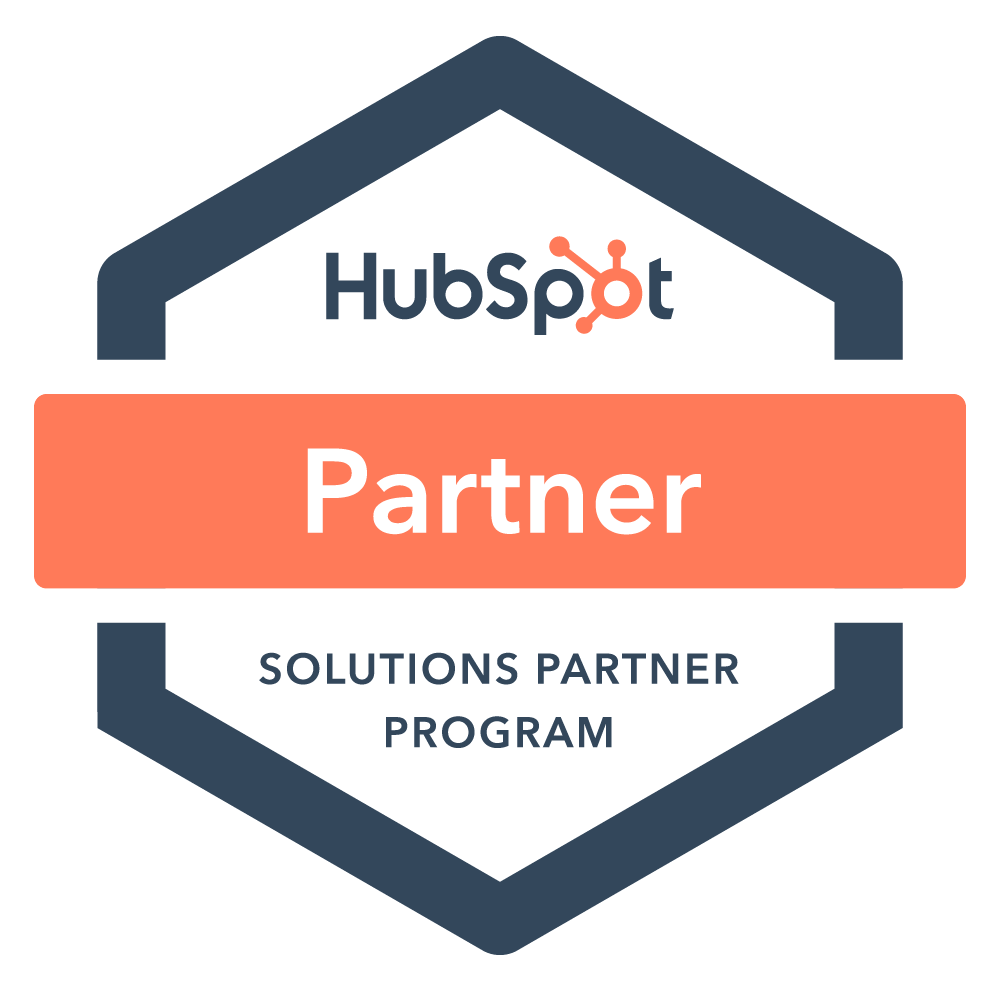As more content is pushed out about the role of generative AI in marketing, should vendors like Salesforce be mindful of their content on it? Their 2024 marketing AI report is misleading. Here's why.
When ChatGPT took the world by storm in 2022, it led to widespread adoption, and initial excitement for marketers. But, soon, that mixture of power and being in the hands of the masses put us on edge. I can vouch for that with my WhatsApp messages.
Fast forward to summer 2024. Salesforce dropped an ad in my Gmail:

They knew what they were doing targeting me. And, after downloading the content, it got me to asking the real questions every marketing professional is thinking:
How did we get to this point, and should a industry power house like Salesforce be a guiding voice without guardrails around what they say?
Like anything, there's good and bad to the role that Salesforce is playing in the generative AI and marketing space.
Here's why I think Salesforce's "Trends in Generative AI for Marketing" report, and GenAI marketing positioning as a whole, is misleading.
How Did We Get To This Point?
Generative AI burst upon the scene in 2022, spearheaded by Sam Altman and OpenAI's ChatGPT. The press release did little to quantify the impact that was coming:
We’ve trained a model called ChatGPT which interacts in a conversational way. The dialogue format makes it possible for ChatGPT to answer followup questions, admit its mistakes, challenge incorrect premises, and reject inappropriate requests...
We are excited to introduce ChatGPT to get users’ feedback and learn about its strengths and weaknesses. During the research preview, usage of ChatGPT is free.
It's hard to think that was two years ago. It feels like a lifetime since November 2022.
The Early Marketing Adopters
Naturally, marketers are early adopters of tech. Those first 1 million users within 5 days of launch were made up of marketers, founders, and developers.
I can remember using ChatGPT from November 30th. I had dabbled in the GenAI image generator known as DALL-E, but to now have so much horsepower at my finger tips was exciting.
The results were impressive in terms of speed, but accuracy and usefulness wasn't.
Pretty quickly you saw the tell-tale signs of GenAI. If you look closely at the copy it produces, there are some patterns. You'll find unnatural terms like:
- Fast-paced digital world
- Imperative
- Delve
- Underscores
- Resonate
- Empower
- Unleash
- Unlock
- Elevate
Reddit continues to feed this into the ether.
And that's to say nothing about the mind-boggling amount of emojis we're seeing on landing pages, blogs, and social posts because of it 🚀🔎🎓🏆.
How Marketers Use GenAI
The first thing we should say is that an overwhelming 76% of businesses are ill-prepared to use GenAI, let alone the different AI solutions out there, as Gartner report:
GenAI was found to be more common than other solutions like graph techniques, optimization algorithms, rule-based systems, natural language processing and other types of machine learning.
As for marketers, we found endless use cases. How could you not with the power of five team members. That enabled:
- Blog creation at scale - like this YouTuber suggesting you can publish 100 CharGPT blogs within 48 hours
- Using transcription tools like Fireflies for meetings and case studies
- Creating multi-language variants of website copy
- Ad copy with tools like AdCreative.ai
- Keyword research for SEO
- Creating value propositions, descriptions, features, and benefits
- Generating survey questions
- Summarizing competitor content and positioning
- Visual content
- Email headlines, and
- ...the list goes on
The possibilities were, and still are, endless.
The Turning Of The Tide
But all of a sudden, cheat sheets, how-tos, prompt-guides and Udemy classes found their way into the world:

This explosion led to people speculating that AI can replace marketing roles.
The reality is it will, but what roles?
To me, the role of AI puts marketers at the start of their career (or even considering a career) at risk. I'm talking the roles that gave me a chance in marketing - interns and assistants.
Copywriters are particularly at risk as leaders look to cut costs and see the more creative marketers as fodder, as this Guardian article by a copywriter predicted:
In the near term, writers and editors will still be needed, but fewer of them. A human will prompt AI to generate mountains of copy, only intervening again to fact-check, amend and approve. But how long before the model learns to spot commercial opportunities, generate ideas and put perfect content live without any human involvement?
For those in small marketing teams, it's equally dangerous as it creates a false belief that you can cover every part of your go-to-market.
This tide changing has led to the increased argument for position-less marketers.
Naturally, we should turn to our biggest enablers - software vendors - for support...
Salesforce's Take On GenAI Marketing
There are two ways to look at how Salesforce (and by extension HubSpot, hunter.io, and countless other MarTech) has adapted with the AI times.
Marketing AI Positioning
Firstly, they've integrated AI into its marketing cloud.
Similar to HubSpot's AI content assistant and injection of AI into reports and workflows etc., Salesforce leaned into personalization, automation, and insights.
That positioning is understandable, if not underwhelming. This is likely influenced by BCG's reports that 67% of CMOs use AI for personalization and 49% for content creation.
Marketing AI Content
It's the second strategy that I find misleading.
In their "Trends in Generative AI for Marketing" there are four stats highlighted which I have to address, found under the section of "Marketers Already Using Generative AI Are Using It To":
- Create basic content - 76%
- Write copy - 76%
- Inspire creative thinking - 71%
- Generate image assets - 62%
I do not believe that reporting this data is irresponsible. It is the narrative surrounding it.
As proven, GenAI isn't being widely adopted in an advanced manner, let alone in a way that will add value.
We know that copywriters are losing their roles, and even with image creation there is a risk of disruption (though reports suggest designers aren't too worried.)
While GenAI can do all of these things, the bigger question for this Salesforce report is whether GenAI should be used this way.
I would argue it shouldn't, and Salesforce plugging these stats is misleading to both marketers and those responsible for hiring / managing them.
That's because:
- It says nothing about the quality of the "basic content" that is produced and the errors that are found within
- It doesn't offer actionable advice on how you could use GenAI for a starting point, but more importantly, the imperative to up-skill junior team members to work with the output, and
- GenAI is working off countless amounts of human-created content to inform its creativity - using GenAI for creative thinking is reckless without guardrails.
Vendors like Salesforce need to be mindful about the message they're sending by letting readers know that marketers are using GenAI for such basic things. There is no replacement for learning the craft of marketing.
GenAI is there to help us climb the mountain, not take us straight to the top. Without the day-to-day graft and lessons you'll learn from doing these basics yourself, you're missing out on the real point of marketing - making our audience feel something.
And marketers, you need to be careful too. If you're using GenAI that much without appreciating and managing its limitations, you're going to hurt your career and your audience.
The State Of GenAI For Marketers In 2024 [Infographic]
There's no better way to sum it all up than this infographic:

What's Next For GenAI And Marketers?
It's hard to predict, but without change, and addressing content like Salesforce's AI report, marketing runs the risk of being devalued even more than it already is.
Marketers have a choice to make - for the love of our careers, for the love of the art, and the love of our audiences.
Want to talk about GenAI, content marketing, or anything else on your marketing journey? Talk to me anytime, here.

James Milsom
When I'm not spending time quoting What We Do In The Shadows, The Office, or Parks and Rec, I'm watching the Georgia Bulldogs (Go Dawgs!), walking our dog Crosby with my wife, McKenzie, or geeking out on tech. I find time to eat, sleep, and work out too (honest!)






